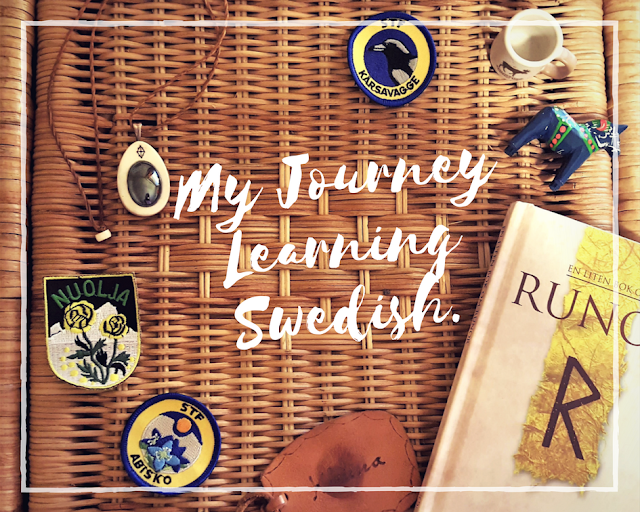Growing Up as A Third Culture Kid
This term is defined by Ruth Van Reken in the following way, "A third culture kid is a person who has spent a significant part of his or her developmental years outside their parents' culture. [They] build relationships to all the cultures, while not having full ownership in any" (this definition was retrieved from an article on the website Room for Debate). I personally find this definition very accurate. In my case however, I have two cultures from my parents: French culture and Swedish culture.
Third culture kids grown up in cultures different from their parents. As a result, they have their parents' culture(s) and those where they grew up and they end up fusing these cultures together into a "third culture". It's a process of building your personal and cultural identity that is unique to every third culture kid.
Lets take a little geography
tour:
I was born in France. When I was
one-year-old my family moved to Reunion island (an overseas region of France)
and then I lived about six years in New Caledonia (a special status
collectivity of France), from when I was three-years-old to almost
nine-years-old. Our next move was to Canada, where we've been living in for the
last (almost) ten years.
 |
| Source: rabotnikof.net |
I don't have memories of Reunion island, but I have clear memories of New Caledonia; it has been an important part of my childhood. While Reunion island and New Caledonia are French regions, they have their own cultures; living there, I wasn't living in my parents cultures, and, of course, the same goes for Canada.
I've always held quite strongly to my roots – through the food of my cultures, (also the candies, like the French malabar and carambar, and the Swedish billar and geléhallon), the memories I have of France and Sweden, my languages, the books and movies from my culture, the music, and Swedish cultural objects (troll figurines, the dalahäst, the kåsa, etc.).
I may not be a Canadian citizen, I've also been shaped by Canadian culture. I've thought a few times about how it would feel to obtain the Canadian citizenship. I enjoy my life here and I am grateful for the experiences I've been able to have living here in Canada, but to me it always felt weird to be Canadian someday. I think that comes from a sense of unfairness – I feel, why should I be Canadian and live in Canada when I am French and Swedish but I've never lived in Sweden and only the first year of my life in France? I know that it is now up to me to construct my life and live where I want to – and that will definitely be France and Sweden someday.
I know the privilege I've had to grow up as a child in different cultures and regions of the world. I've realized that I am very interested in languages (I'm thinking of learn a little bit of Finnish this summer, and honestly they are SO MANY languages I would want to learn) and I would love to travel on my own someday – I definitely want to tour France, Sweden, and maybe visit Reunion and New Caledonia (they are beautiful islands).
Having this openness to different cultures, languages and countries are definitely pros of growing up as a third culture kid, but, like anything, there aren't just positives to this experience.
The biggest negative for me about growing up in cultures different from my own, is that it gives me a sense of cultural lack. While I am French and Swedish, I don't have a full sense of their culture – especially in terms of pop culture. Like people who adopt a new culture, there are plenty of little things that I don't necessarily know about my cultures. French has always been so present in my life, and then English as well, but Swedish hasn't. Consequently, I feel that I've missed out a lot in terms of the Swedish language – I know the language but it takes me practise to speak it casually and be confident when in speaking it.
I also definitely feel both a sense of familiarity and unfamiliarity at the same time when I go to France and Sweden. I feel like I am a tourist in my own home countries, and while I know the hometowns of my parents, I am definitely not a local there.
Sometimes I feel like I am lost between three different cultures – those of my parents and the one in which I've been living for the last ten years. Sometimes, I feel that I could probably live anywhere, but I know that I want to build myself a true sense of home in France and in Sweden.
 |
| Trip to Reykjavik, 2017 |
Sometimes I feel like I am lost between three different cultures – those of my parents and the one in which I've been living for the last ten years. Sometimes, I feel that I could probably live anywhere, but I know that I want to build myself a true sense of home in France and in Sweden.
I feel that knowing that there is a term for this kind of experience and actually realizing that I'm not the only one who's lived like this has been illuminating. Reading about it online and hearing people talk about it makes me feel like I'm not alone, that I'm not the only one having to deal with this sense that I'll never 100% belong to my own culture(s).
I believe that there is no true barrier between human beings; we must learn to respect our differences. And this movement that is becoming more and more global, helps us to do just so; living in a different culture, we become more open-minded humans.
See you again soon!
Mara




Comments
Post a Comment